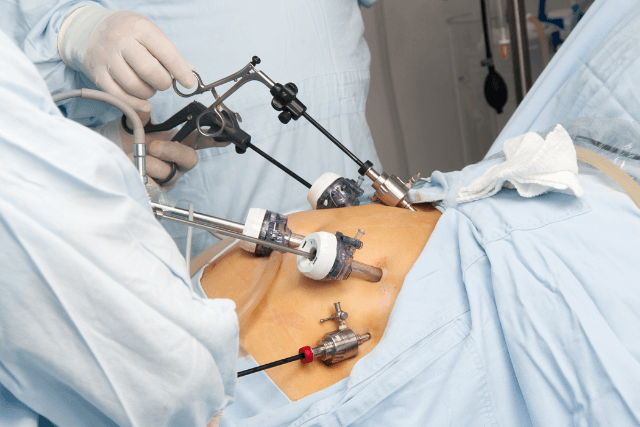For individuals who have undergone bariatric surgery, understanding portion control is not just a recommendation; it is a cornerstone of long-term success. While surgery significantly restricts the amount of food you can eat, it is up to you to make conscious choices about what and how much you consume. This blog will explore why portion control is so vital, provide practical strategies for managing your intake, and discuss how it contributes to achieving and maintaining a healthy weight after surgery.
Why Is Understanding Portion Control So Important?
Bariatric surgery, such as gastric bypass or sleeve gastrectomy, alters the digestive system to limit food intake and/or nutrient absorption. These procedures create a much smaller stomach pouch, which fills up quickly, making you feel full on very little food. However, this is not a license to eat high-calorie, low-nutrient foods. Ultimately, understanding portion control prevents a phenomenon known as “pouch stretching” and helps you avoid weight regain.
When you consistently overeat, even small amounts beyond your new stomach’s capacity, you can gradually stretch the pouch. This can lead to a return of larger appetites and ultimately, weight gain. Furthermore, focusing on the right portion sizes ensures you get the most nutritional value from every bite. After all, every single calorie matters when you are consuming so little.
Mastering Meal Planning and Preparation
Successful weight management after bariatric surgery begins long before you even sit down to eat. Mastering meal planning is one of the most effective strategies for ensuring you adhere to your new dietary guidelines. By planning your meals in advance, you remove the guesswork and reduce the temptation to grab high-calorie, low-nutrient foods.
First, create a weekly meal plan that includes a balanced mix of lean protein, vegetables, and whole grains. Next, use that plan to create a detailed grocery list. When you shop with a list, you are far less likely to make impulse purchases. Finally, dedicate a block of time each week to food preparation. You can pre-chop vegetables, cook and portion proteins, or prepare entire meals in advance. This makes it incredibly easy to grab a healthy, pre-portioned meal when you are busy, thereby preventing you from making poor food choices.
Using the Right Tools for Portion Management
To truly succeed with understanding portion control, you need the right tools. Simply eyeballing your food portions is not enough, especially in the early stages after surgery. Instead, use these simple but effective tools to measure your food accurately.
- Measuring Cups and Spoons: These are your best friends in the kitchen. Use them to measure out foods like rice, pasta, and sauces. You will be surprised at how small a half-cup serving of rice actually is.
- A Food Scale: For protein and other dense foods, a digital food scale provides the most accurate measurement. Weighing your protein, for instance, ensures you get the exact amount recommended by your dietitian.
- Small Plates and Bowls: Using smaller dinnerware can trick your mind into thinking you are eating more than you are. A small plate full of food looks much more satisfying than a large plate with a tiny amount. This psychological trick can make portion management feel less restrictive.
Prioritizing Protein and Nutrient-Rich Foods
After bariatric surgery, your body requires a lot of protein to heal and to prevent muscle loss. Prioritizing protein is a critical part of your new diet. Protein helps you feel full, supports muscle repair, and stabilizes blood sugar. Your dietitian will provide specific protein goals, but generally, you will need to consume small amounts of protein with every meal and snack.
Aim for lean protein sources such as chicken, fish, eggs, tofu, and Greek yogurt. These foods will provide the necessary building blocks for your body without adding excessive calories. Similarly, focus on nutrient-dense foods like non-starchy vegetables, which provide essential vitamins and minerals without taking up valuable space in your small stomach pouch. As a result, you will feel more satisfied and energized.
Mindful Eating and Pacing Yourself
Mindful eating is a powerful practice for anyone, but it is absolutely essential for bariatric surgery patients. Since your stomach is so small, eating too quickly can lead to discomfort, nausea, vomiting, or even more serious complications. Therefore, you must learn to eat slowly and deliberately.
Before you even start, put away all distractions like your phone, the television, and the computer. Next, focus on the food in front of you. Chew each bite thoroughly until it reaches a paste-like consistency. This is crucial for proper digestion and for preventing blockages. Between bites, put your fork down and take a sip of water or simply pause. This allows your stomach to signal to your brain that it is full. By practicing mindful eating, you can truly listen to your body and avoid overeating.
Handling Social Situations and Eating Out
Eating out can be a major challenge for bariatric patients who are focused on understanding portion control. Social gatherings and restaurant meals can easily derail your progress if you are not prepared. Fortunately, you can still enjoy social events with these simple strategies.
- Plan Ahead: Look at the restaurant’s menu online before you go. This allows you to choose a bariatric-friendly option in advance, like a lean protein and vegetable dish.
- Order Smart: Do not be afraid to ask for modifications. Request that your food be prepared without butter or heavy sauces. Ask for a side of steamed vegetables instead of starchy sides.
- Use the “To-Go” Box: As soon as your food arrives, ask for a to-go box. Immediately pack half of your meal to take home. This physically prevents you from overeating and ensures you have another healthy meal for later.
- Focus on the Social Aspect: Remember that dining out is not just about the food. It is about the company you are with. Shift your focus to the conversation and the people around you, rather than the meal itself.
Conclusion
Understanding portion control is an ongoing journey that is fundamental to your success after bariatric surgery. By mastering meal planning, using the right tools, prioritizing nutrient-rich foods, and practicing mindful eating, you can make informed choices that support your weight loss and long-term health. Ultimately, this journey is about building new, healthy habits that will last a lifetime. Remember, your bariatric surgery was a powerful tool, but your dedication to portion management is what will truly ensure you reach your goals.



